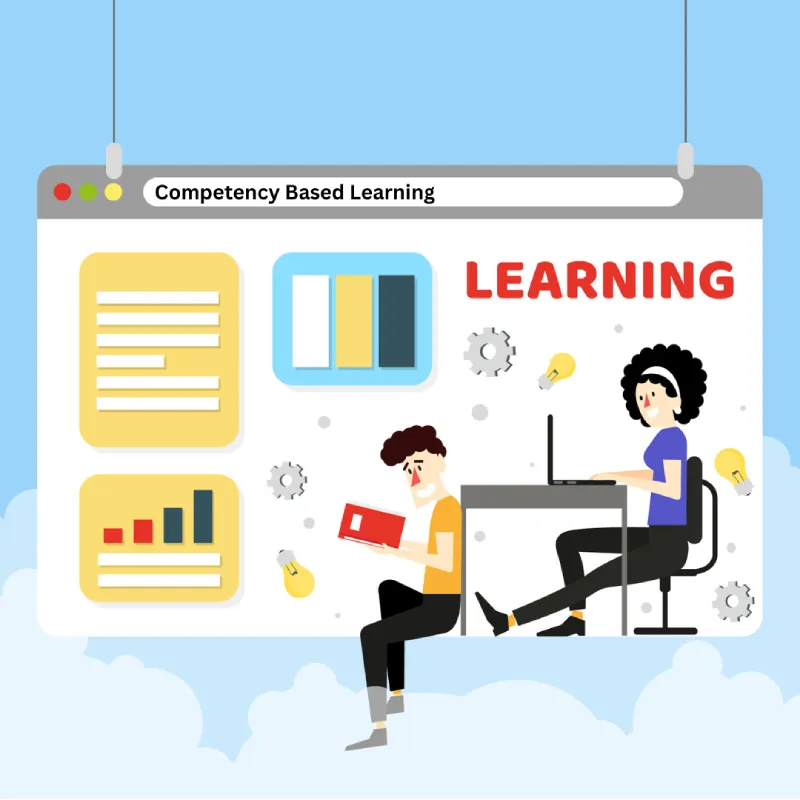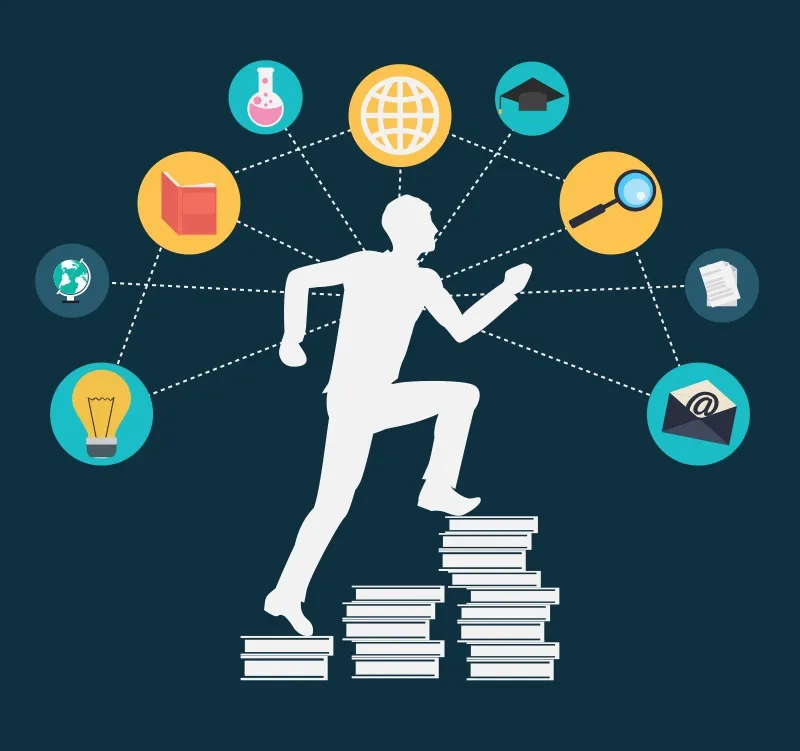
Introduction:
In recent years, traditional education systems have witnessed a significant shift towards competency-based learning (CBL) as an innovative approach to education. CBL focuses on students acquiring specific skills and knowledge, allowing them to progress at their own pace while emphasizing practical application and real-world competencies. This blog post explores the meaning, objectives, importance, benefits, and diverse applications of competency-based learning. Furthermore, we'll delve into how Entab's experiential learning assets can support both students and schools in implementing CBL effectively.

Meaning of Competency-Based Learning:
Competency-Based Learning is an educational framework that centers around students acquiring specific competencies or skills. Unlike traditional systems that rely on seat time or grades, CBL focuses on mastery of skills and knowledge, ensuring learners demonstrate proficiency before advancing. This approach enables students to progress individually, allowing for personalized and flexible learning experiences.
Objectives of Competency-Based Learning:
The primary objectives of CBL are as follows:
B. Individualized Learning: The objective is to cater to each student's unique needs, allowing them to progress at their own pace and focus on areas that require attention.
C. Lifelong Learning: CBL encourages students to develop a passion for learning, fostering skills that are applicable beyond the classroom, preparing them for future success.
Importance of Competency-Based Learning:
CBL holds significant importance in modern education due to the following reasons:
A. Personalized Learning: CBL provides personalized learning experiences, allowing students to set their own goals and work at a pace that suits them best.
B. Relevance and Real-World Application: By emphasizing practical skills and knowledge, CBL prepares students for real-life challenges and future careers.
C. Flexibility and Adaptability: This approach allows learners to adapt to their own learning styles and needs, fostering a more engaging and effective learning environment.
Benefits of Competency-Based Learning:
Implementing CBL brings numerous benefits to students, educators, and the education system as a whole:
Mastery and Depth: Students gain a deep understanding of the subject matter by focusing on mastering specific competencies rather than simply passing exams.
Personal Growth: CBL fosters self-directed learning, critical thinking, problem-solving, and collaboration, nurturing well-rounded individuals.
Increased Engagement: By tailoring learning experiences to students' interests and abilities, CBL promotes active engagement, motivation, and a sense of ownership over their education.
Seamless Transition: CBL facilitates a smoother transition between educational levels, ensuring students are adequately prepared for future academic and professional endeavors.
Usage of Competency-Based Learning in Different Points:
CBL finds applications in various educational settings:
K-12 Education: CBL enables students to progress through grade levels based on mastery of specific competencies, allowing for personalized and targeted instruction.
Higher Education: Colleges and universities are increasingly adopting CBL to ensure graduates possess the necessary skills and competencies for employment in today's dynamic job market.
Professional Development: CBL can be used to enhance professional development programs, enabling individuals to acquire and demonstrate specific skills relevant to their careers.

Entab's Experiential Learning Assets and CBL:
Entab's experiential learning assets provide invaluable support to both students and schools in implementing CBL effectively:
Personalized Learning Solutions: Entab's digital platforms offer personalized learning paths, adaptive assessments, and data-driven insights, facilitating individualized learning experiences.
Real-World Simulations: Entab's experiential learning assets provide interactive simulations and virtual environments, allowing students to apply their knowledge in practical scenarios, bridging the gap between theory and practice.
Competency Tracking and Assessment: Entab's tools enable schools to track and assess students' progress on specific competencies, providing valuable data for personalized instruction and intervention.
Collaboration and Communication: Entab's platforms facilitate collaboration among students, teachers, and parents, fostering a supportive learning community where students can engage in peer-to-peer learning and receive feedback.
Professional Development: Entab's resources also support teachers in implementing CBL by offering professional development modules that enhance their understanding of competency-based instruction and provide strategies for effective implementation.
Data Analytics: Entab's data analytics capabilities help schools analyze student performance, identify areas of improvement, and make informed decisions to enhance the effectiveness of CBL implementation.
Conclusion:
Competency-Based Learning (CBL) represents a transformative approach to education, focusing on mastery, personalization, and real-world application of knowledge and skills. By adopting CBL, students benefit from personalized learning experiences, enhanced engagement, and the development of essential competencies. Entab's experiential learning assets complement CBL implementation by providing personalized solutions, real-world simulations, competency tracking, collaboration tools, and data analytics. Together, CBL and Entab's resources empower students and educators to create a dynamic and effective learning environment that prepares students for success in an ever-evolving world